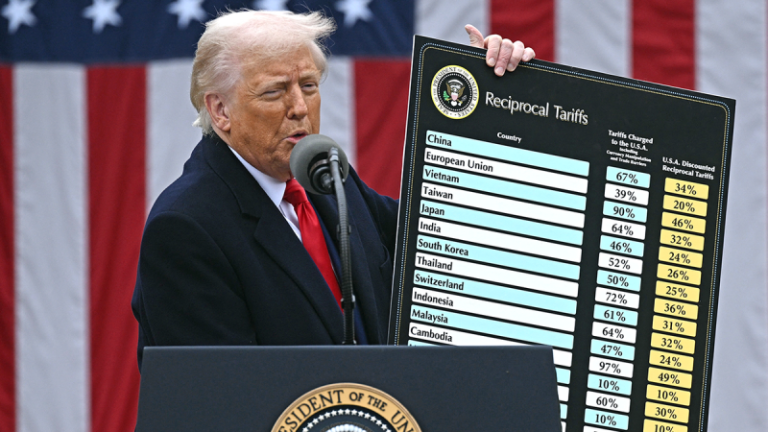TAMPA, Fla. — MiLaysia Fulwiley now knows how her South Carolina teammates feel when she pulls off highlight-worthy plays.
When freshman forward Joyce Edwards grabbed a defensive rebound in the middle of an 11-0 run for the Gamecocks on Friday, Fulwiley watched in awe. Edwards dribbled through traffic down the court at Amalie Arena, unshaken by the pressure. There wasn’t an ounce of doubt in her eyes as she went coast-to-coast and finished strong at the rim, giving South Carolina a 13-point lead over Texas in the third quarter of their Final Four game.
‘Man, I kind of just started watching like how my teammates be watching me, honestly,’ Fulwiley said. ‘It felt like a movie.’
After a tight first half between the two No. 1 seeds, South Carolina pulled away in the third quarter for a dominant 74-57 win and a trip to the national championship game Sunday (3 p.m. ET, ABC). South Carolina will play for the title against UConn and Paige Bueckers, who destroyed No. 1 overall seed UCLA 85-51 in the other Final Four game.
Against Texas (35-4), Edwards was a force to be reckoned with in the biggest game yet of her young career, ending the night with 13 points, 11 rebounds and six assists. She was fearless, which is what Fulwiley said the Gamecocks need from Edwards if they want to become the first repeat national champions since UConn in 2016.
No one watching Edwards on Friday would know she was coming out of a three-game slump. She only averaged five points per game as her team won by slim margins through the second round, Sweet 16 and Elite Eight of the women’s NCAA Tournament.
But from the moment Edwards first subbed into the first Final Four of her career, the Gamecocks started getting her looks.
‘I just kept telling her, they can’t guard you Joyce,’ Fulwiley said. ‘They can’t mess with you, and you got to understand that.’
Edwards’ teammates had confidence she’d bounce back, because they saw how tirelessly she worked to get herself out of her slump.
Edwards tried everything. She’s a student of the game, teammate Adhel Tac said, and she watched film all the time, searching for anything she could do better, any mistakes she made. She asked all the coaches for advice, looking for any little thing to make her better and help propel her team to another championship.
When Edwards was too hard on herself, senior point guard Raven Johnson reminded her that all the great players go through slumps. But what made them great is that they overcame it.
‘A’ja Wilson went through it. Kamilla Cardoso went through it. Aliyah Boston went through it. People that’s before her went through it,’ Johnson said. ‘She just got to believe in herself. But she’s a freshman, she’s just starting. I’m glad it’s happening to her now and that she understands how to overcome slumps, how to get over adversity.’
South Carolina coach Dawn Staley was happy for Edwards. She said she understands how hard it is for young players to struggle in the game they love.
‘She really works at it. She watches film. She’s obsessively working out,’ Staley said. ‘So you want people like that to enjoy the fruits of their labor.’
The growth wasn’t easy, but Staley pushed Edwards to embrace it. She wanted Edwards to get as much information as possible out of this, to familiarize herself with how people are guarding her. She’ll continue to see it throughout her career, and the next time, she’ll know better how to navigate it.
Staley and her coaches talked Edwards through her struggle. They asked her the questions to get her to go a little deeper, because they said she was holding on to her mistakes too much.
‘You’re like, ‘I want to perform so well,’ that it works against you,’ Staley said. ‘So you get them to talk and release everything that’s holding them down, and it frees them up.’
Sometimes there’s too many voices, especially for Edwards. Every voice matters to her, Staley said, and she had to encourage Edwards to figure out who she could go to and decompress.
For Edwards on Friday, it was her father’s voice that echoed in her mind.
‘He just told me to go out there and play,’ Edwards said.
And play she did.
At the end of the first quarter, during which Texas had taken an eight-point lead, Edwards brought the ball up the court for the last possession. She dribbled out the clock and glanced back at Staley.
Staley gave her a look and motioned for her to go.
It was part of the scouting they’d done ahead of the game: Texas was going to pressure and deny their guards, so let a forward like Edwards take matters into her own hands.
Edwards put her head down and drove past Kyla Oldacre to finish at the rim.
‘It’s great when you finally feel like you’re reaching that peak over that obstacle,’ Edwards said. ‘It’s just a great, great feeling.’










